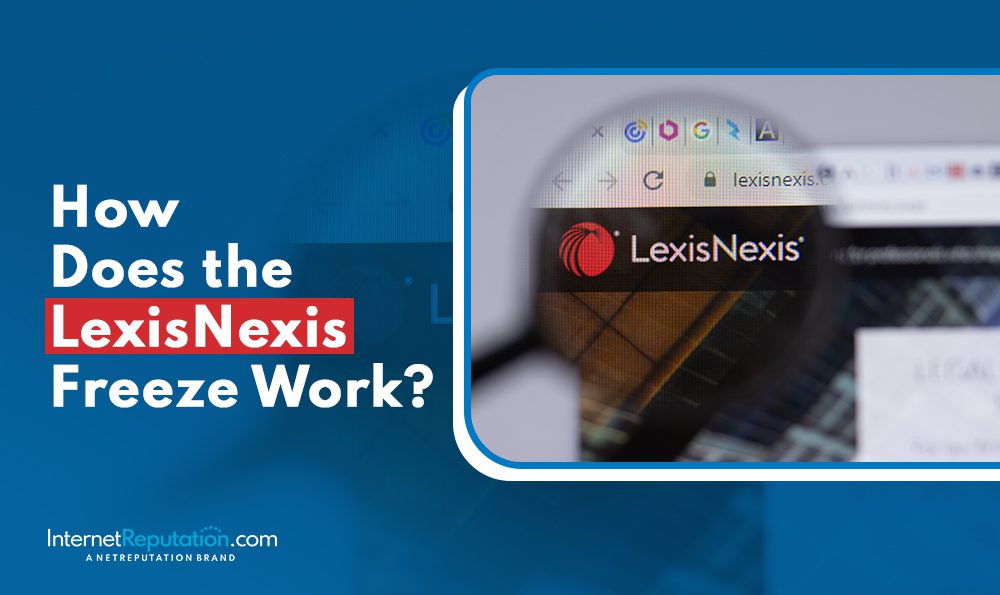What is an Online Reputation and Why Does it Matter?

An online reputation is the sum total of all the information available about you on the internet. It includes everything from your name and contact information, to what others say about you online.
Your online reputation management can have a huge impact on your life, both professionally and personally. That’s why it’s important to take steps to protect it and manage it proactively.
What is Online Reputation?
Your online reputation is essentially a reflection of who you are as a person – or at least, who people perceive you to be. It includes all the information that’s available about you online, from your name and contact info, to what others say about you in forums, social media posts, blog comments, and more.
Online reputations are the sum total of all your online activity, including everything you post to social media websites like Twitter and Facebook. It also includes every comment you post to blogs, news articles, forums, and other sites where people congregate on the web.
Your online reputation can affect both your personal life and your professional life – so it’s important that you understand what others see when they search for you online.
Why Does it Matter?
Online reputation matters because it plays an essential role in how people interact with you on the web.
It significantly affects how people perceive you, which can lead them to (positively or negatively) engage or avoid engaging with you at work and in social settings.
For example: If someone does a Google search for your name and finds nothing but positive information – like positive blog posts that mention you by name – they’re likely to interact with you favorably. If someone does a Google search for your name and finds several negative reviews and comments about you scattered throughout the first few results, they may avoid interacting with you altogether.
It’s important to realize that what people find when they search for you on Google can affect how they perceive you as a whole, which can have a huge impact on not just your professional life, but also your personal life.
According to new research from Harvard Business School, employers are more likely to hire applicants who rank highly in web searches than those who do not. So if someone conducts an online search for potential employees and sees that one applicant has several positive results mixed in with a few suspicious results, they’re likely to assume that the applicant with more positive results is the better candidate.
On the flip side of that equation, if someone sees that an applicant’s online search results are mostly negative, they may assume that this person isn’t trustworthy or reliable enough to work for their company (regardless of how qualified they may be).
This can create a serious problem for job applicants who receive poor search rankings due to content posted by former employers or disgruntled customers.
Crafting a Positive Online Reputation
The good news is, you can take steps to protect your online reputation and ensure that your search results are positive.
First of all, make sure there isn’t anything negative or conflicting in your search results. If you have a common name like John Smith, be sure that the John Smith with the most web clout isn’t someone with a criminal record or bad credit history.
You should also ensure that any content about you online is consistent throughout the Web. For instance, if someone Googles one variation of your name (John J. Smith), but sees completely different information on another (John K. Smith), this inconsistency could negatively affect their perception of who you are as an individual.
Second, any potentially damaging content or negative reviews from your past should be removed from the web if possible. If you know that an employer or a future date is going to do a Google search on you, take proactive steps ahead of time to ensure that they don’t see anything negative in your online presence.
You can also engage with others and participate in conversations on the Web in order to improve your positive reputation and create a better online reputation for yourself.
Most importantly, though? Remember that while some people may not care what’s posted about them online, some will and your online reputation management strategy needs to prioritize those who care about your online reputation.
That means it’s important for everyone who has an online presence – whether on Twitter or Facebook, blogs, or news sites – to take responsibility for their public-facing persona, or online reputation, by creating engaging content, encouraging honest online reviews, participating in their own online reputation management, and fostering constructive relationships with others while online.
Protecting Yourself from Online Reputation Damage
The good news is, your online reputation isn’t something you have to passively accept and live with. You can take proactive steps to protect and enhance it: If your name is hard to spell or pronounce, you can register a domain name consisting of your full name – like www.SuzySmith.com – and then link that site to all of your social media profiles.
By doing this, you’ll make it easier for people (and search engines) to find your online content when they search for your name. If someone has posted negative reviews about you somewhere online, you can take steps to remove that damaging content or put in place measures that show how or why it’s inaccurate.
You might also consider hiring professionals in online reputation management who specialize in removing negative online content and poor online reviews from the web. This is especially important if one particular result shows up high in Google when someone searches for your name or your business.
According to a study by the Bing search engine, having a single negative result show up on Google’s first page of results can reduce traffic to your website by as much as 50%.
So if someone searches for you online and sees only negative information about you, it’s likely to diminish your professional reputation – and even damage your personal life.
That’s why it’s so crucial that you take steps (either on your own or with the help of local professionals) to ensure that what people find when they search for your name promotes – rather than diminishes – your online reputation.
Different Examples of How Online Reputation is Created
Since your online reputation is based on the sum total of what people find when they search for your name, it’s important to understand what sorts of things can influence how people perceive you. Here are five common factors that may affect an online search:
1) Google Biography Snippets
When you conduct a Google search for someone’s name, you might notice that some results show up in the left-hand sidebar under the heading “In the news.”
These are called “Google Biography Snippets,” and they’re drawn from websites like Wikipedia.org. So if someone edits your Wikipedia entry to include negative information about one of your personal or professional failures, that change will appear whenever anyone searches for your name.
And if enough people contribute damaging information to your Wikipedia entry, it could completely push your positive results out of view on Google. Monitoring these entries should be part of your online reputation management strategy and is part of what makes online reputation management important.
2) Links from Other Websites
When you publish something on the web, such as an article or blog post, the chances are good that you’ll link to it from your social media profiles and your own website thus, adding to your online reputation and business reputation.
And if other people repost one of your articles – especially if they write a comment identifying you by name – then whoever searches for your name will see those links at the top of their search results. This is the basics of search engine optimization and the beginnings or your online reputation building up for you.
Of course, some links appear more prominently than others. So even though links from reputable websites like Forbes and The Huffington Post may rank highly in a Google search, these links would not have nearly as much impact as links posted by people within your specific niche or network.
Getting a good online reputation and positive reviews in niche relevant online communities and your industry’s online world will do wonders for any online reputation management campaign.
3) Blogs and Social Media Comments
Comments posted on social media, blogs, message boards, and other online forums can be particularly influential. They bring up your name when readers search for you (or the topic at hand), and they often include links to your website or social media profiles.
But keep in mind that comments like these are often negative since many bloggers tend to write about hot-button issues such as politics and religion – which can lead people to say things they might not otherwise say if they were face-to-face with you (at a networking event, for example).
This is especially true if someone has had a bad experience with you – however small – and feels justified about expressing it. And since the written word is more permanent than the spoken word, these comments can hang around for a long time.
When your current online reputation is concerned try and stick to positive content that isn’t set to stir up trouble. When people search online they want to see you’re supporting your good reputation by boosting positive content and not leaving negative comments. A single negative review won’t kill you but bad reviews, unlike positive reviews, especially on review websites tend to snowball and have a more damaging effect.
4) Reputation Management Sites
If someone has made repeated negative postings about you, there’s a good chance that one of them will end up on a reputation management website. These sites offer to clean up your online reputation in exchange for a monthly subscription fee – but they often post positive information alongside the negative stuff in order to increase their page views and justify their fees.
And since many of these websites also sell fake testimonials from fake clients, you have no way to know if any of the posts or testimonials are real or not. In fact, some people set up these sites just so they can post embarrassing things about their ex-spouse, business rivals, and so on.
5) Review Sites
Customer reviews are perhaps the most common type of online reviews since customers are often motivated to share their opinions in order to help others decide where to spend money.
Unfortunately, when it comes to customer online reviews, there’s no such thing as a free lunch. And by that, I mean that if you’re being praised for your stellar service, then someone else is probably being criticized for poor service. Consumers read online reviews to get a better picture of your business online.
This is especially true when it comes to restaurants and retail establishments, but you’ll find this dynamic at work in every industry – including yours. Online reputation management works by boosting a positive online reputation while reducing negative reviews and search results for your name and business. This diminishes negative search results and boosts business revenue by giving internet users good online research and the brand image you want to promote.
How Can You Improve Your Online Reputation?
If you want people who are searching for your name to see positive rather than negative results, you will need to manage your online reputation.
And the first step is to remove any false, misleading, or defamatory information about you. Of course, this isn’t always easy – especially if the information was shared by people within your network who refuse to take it down.
But if you can’t get something removed (and most things can be eventually), then at least try to ensure that positive posts appear before negative ones whenever possible. For example, if someone has written a critical review of your business, then avoid responding with an angry comment yourself.
Instead, post some genuinely positive reviews of your own and encourage customers to do the same (which will push down your opponent’s comments). Then monitor everything closely for potential problems (the more often you check-in, the better), and always respond quickly whenever a negative review is posted.
When It’s Time to Call in Online Reputation Management Services
Unfortunately, you can’t keep an eye on everything 24/7 – and there are some things (such as defamation lawsuits ) that require immediate attention.
So if you find yourself struggling to manage your online reputation by yourself, then consider hiring a professional online reputation management company. Be sure to do your research before you sign up for any service – and don’t be afraid to ask questions like:
- How will this company help me manage my online reputation?
- What sort of experience does it have with my industry?
- Will you claim to remove negative results from search engines – or will we work together every step of the way?
And remember: no matter how big your budget may be, never buy fake testimonials or post them on your own. There’s no way to make this stuff look genuine, and you only risk alienating customers who find out the truth.
Will Online Reputation Management Help You? – The Bottom Line
In today’s digital world, your online reputation (or digital reputation) matters. Using the internet to find information about people has become second nature for most consumers, so even if someone has never heard of you, they might learn everything they need to know simply by typing your name into a search engine.
If that happens, then you must work hard to manage your online reputation in order to ensure that positive results appear before negative ones. And with a little effort and patience, it’s entirely possible to turn things around in a hurry.
Click here to learn more about our approach to online reputation management today!



